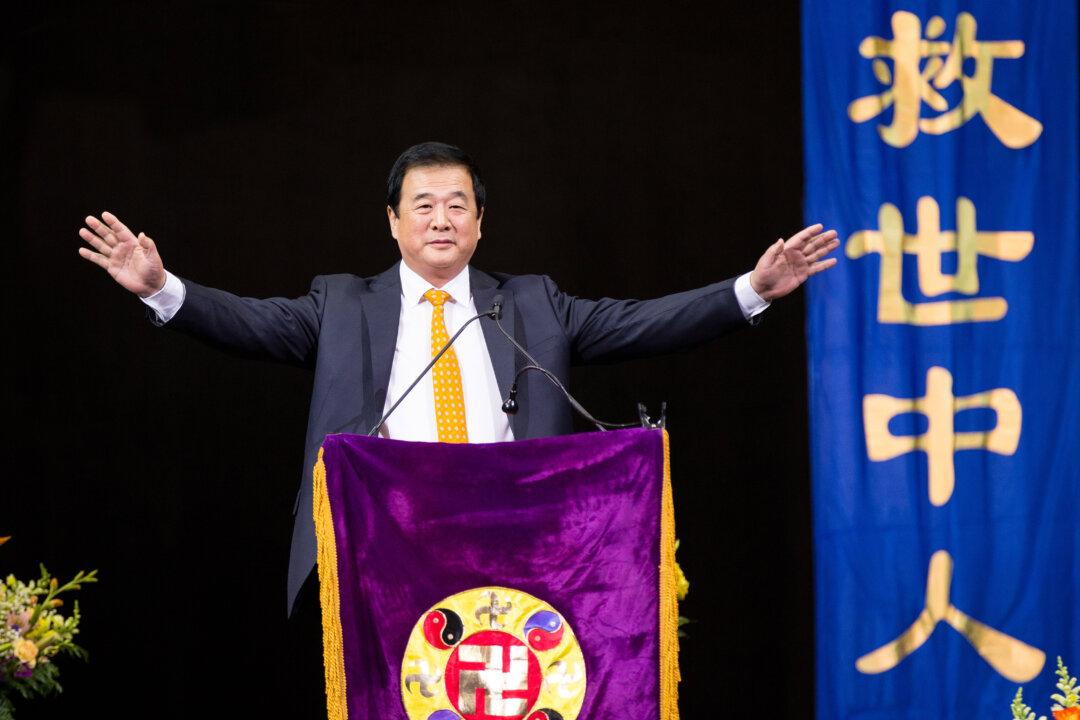NEW YORK—The founder of Falun Gong, Mr. Li Hongzhi, spoke to nearly 10,000 practitioners of the spiritual discipline on May 15 at the Barclays Center. Before and after his talk, individuals gave talks about what they had learned in practicing Falun Gong and how they had educated people about the persecution adherents suffer in China.
Falun Gong, also called Falun Dafa, is a practice of self-cultivation—adherents seek to improve their bodies, minds, and spirits. Falun Gong practitioners live according to the principles of truthfulness, compassion, and tolerance, and they also practice five exercises—four of which are standing exercises with gentle movements similar to Tai Chi, and a fifth that is a sitting meditation.
After first being publicly taught on May 13, 1992, the practice spread very rapidly in China, with 100 million having taken it up by 1999. In July 1999, the then paramount leader of the Chinese Communist Party, fearing that the moral teachings of Falun Gong might prove more attractive than the Communist Party’s ideology, ordered a campaign aimed at exterminating the practice. Since then, Falun Gong practitioners have sought to end the persecution by telling people inside and outside China about what Falun Gong is and how it has been persecuted.
Mr. Li spoke at the conference in the early afternoon. He emphasized the importance of exposing the persecution and urged practitioners to do better in their cultivation. He also took time to answer questions from the audience.






